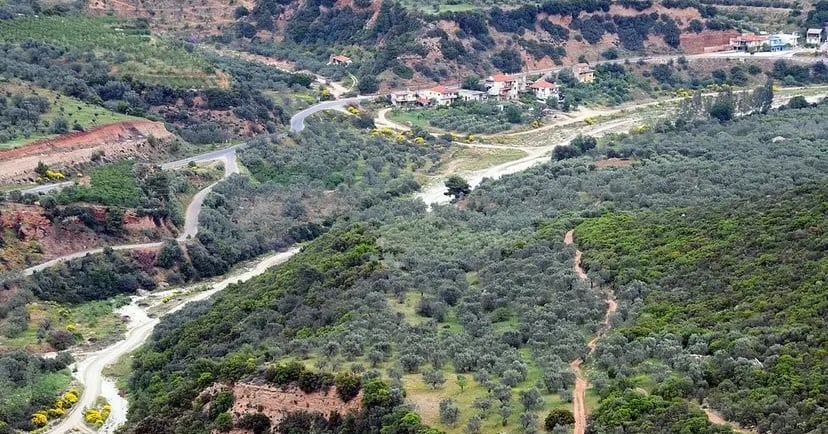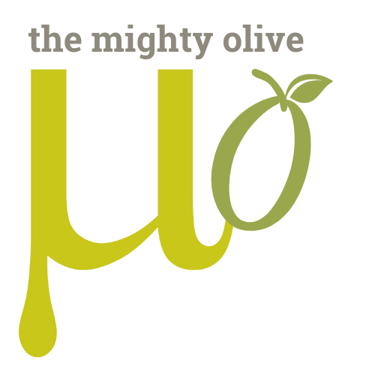July: Regenerative Farming Living Lab
In July we attended a seminar and wokshop in Kato Doliana - an EU living lab for soil health
7/27/20253 min read


It’s mid-July and it’s the hottest weekend of the summer so far. Over 40 degrees Celsius, the sun beats down relentlessly and the winds are picking up as the afternoon progresses. Perfect conditions for the wildfires that destroy millions of hectares of forest and farmland in Greece every year.
We are in the village of Kato Doliana in Arcadia for a long weekend to attend a seminar and workshop on regenerative agriculture. The village is one of 5 living labs in the EU funded Gov4All program – a soil mission project bringing farmers, scientists, NGOs and policy makers together to tackle soil health challenges in the Mediterranean region.
We can’t quite believe our luck as Kato Doliana is the village where Nina’s father Nikos was born and raised. The same village where we are now managing around 100 olive trees, which have been under our care since he passed away last September. Most of the trees in this olive grove – many of which are ancient – are the local variety Manaki. They produce a small, round green olive which is most delicious edible as well as making a wonderfully fragrant olive oil. We have been experimenting with an extra virgin olive oil blend from Koroneiki and Manaki which is really something quite special.
That we have the opportunity to participate and learn from this living lab is wonderful.
The seminar is on soil literacy and emphasises the crucial role a healthy living soil plays in the overall ecosystem, our food security and tackling the climate crisis. As we incorporate practices into the management of our olive grove with the purpose of building the soil health we see the benefits of the spirals of abundance that we can trigger when we work with nature: as we plant cover crops to protect the soil, root systems develop which help prevent erosion and also break up and loosen the soil creating air pockets and allowing water to penetrate; with food, water and air, microorganisms can flourish and do their important work to break down organic matter and store carbon in the soil; once we mow the crops, or bring animals in to graze on them, we return more organic matter to the soil; this organic matter increases the ability of the soil to hold onto and store the rain when it comes; the more hydrated the soil the better able the trees are to withstand periods of drought; when trees can access to water via their roots they return that water back to the atmosphere through their leaves, creating a cycle which cools the ambient temperature and reduces the risk of summer wildfires.
The biggest takeaway of the seminar for us was the critical role of dry-stone walls in the olive grove, especially those on slopes:- as a way of retaining soil, protecting against flash floods, acting as a fire-break, and as a habitat for a huge range of insects, reptiles and mammals that all play their role as natural predators of pests that can damage the olive harvest.
The next day we have a practical hands-on workshop to show how to rebuild the walls built by our ancestors (who knew very well what they were doing!) and a demonstration of how well the stone walls contribute to both healthy soil and water retention.
We left the weekend enthused and with some clear and practical steps that we will build into our management of the olive grove alongside our existing regenerative practices:
1. Build stone walls along the side of the grove that faces the river to protect from soil erosion during flash floods (we have been told that already several trees had been taken by the river)
2. Plant gorse or other deep-rooted shrubs or trees between the stone wall and the river as an extra layer of defense
3. Bring horses or donkeys to graze in the field (and of course leave us their precious manure)
4. Create crescent shaped moons around the trees to hold water
5. Mulch with straw in the summer around the trees to retain humidity
6. Build on the existing mounds of stones which divide our olive grove into ‘neighbourhoods’ to create Hügelkultur beds where we can plant fragrant herbs like rosemary, oregano, lavender and thyme to attract bees and other beneficial insects
Exciting times ahead!
the mighty olive
Premium extra virgin olive oil, farmed organically in Greece.
CONTACT US
JOIN OUR MAILING LIST AND BE THE FIRST
TO KNOW ABOUT OUR NEXT HARVEST
Nina: +30 699 307 6064
© 2024. All rights reserved.
Felicity: +30 697 266 3884
Registered Business Address:
Neromylos 0, Messinia, 24005, Greece
